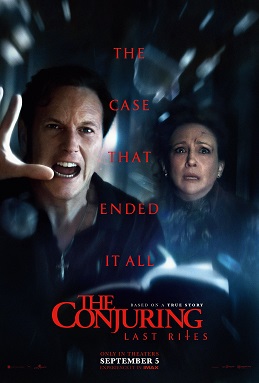Dark Waters is…Dark. It’s Also Incredibly Important.
Dark Waters is a drama about one of the biggest environmental scandals in American history: the water contamination and public health risk created and covered up by the chemical company DuPont. The film was released on Nov. 12, 2019 and was directed by Todd Haynes. It stars Mark Ruffalo, Anne Hathaway, and Tim Robbins. It’s not a perfect movie and sometimes seemed overly dark and dramatic, but it tells a powerful story.
The movie is based on a New York Times Magazine article about Robert Bilott, a corporate defense attorney from Cincinnati, Ohio. Bilott’s life and career trajectory completely changed when he received a call from a West Virginian cattle farmer named Wilbur Tennant. Tennant lived next to one of DuPont’s landfills and believed his cows were dying because of toxic chemicals dumped there. Bilott took the case on as a favor to his grandmother, who lived in the area.
Over the next few years, Bilott uncovered an enormous scandal. The toxin Tennant had suspected was Perfluorooctanoic acid (PFOA), which is a chemical used in the production of coatings like Teflon. DuPont had been pumping it into the Ohio River to dispose of it, and it seeped into the ground and entered the local water supply. PFOA causes a number of health issues in humans, in part because it doesn’t break down after it enters the body. Cancer, liver damage, and birth defects have all been linked to the chemical. DuPont conducted its own medical studies and was aware of its damaging health effects, but PFOA was crucial enough to the success of their products that they kept using it.
Bilott sued DuPont first on behalf of Tennant, and later on behalf of every community member whose water was contaminated. He also launched a federal investigation into the company’s actions. DuPont was forced to settle and pay for damages, but was never held responsible for its actions beyond that. They used legal tricks to prolong the process, and production of PFOA didn’t end until 2013 – more than a decade after Bilott’s first lawsuit.
Dark Waters is an accurate name … it was a pretty depressing movie. It was filled with eerie music and most of the scenes took place at night. At times it felt overly depressing, which is likely because I went in knowing nearly nothing about the story. I expected it to be a quick, triumphant case, and it wasn’t one. It was full of heartbreak and the movie conveyed that.
The movie had a complicated story to tell and at times it became pretty confusing. I often felt like I was one step behind and struggling to catch up to the plot. The storyline was typically revealed in conversations only after important events happened, and it was easy to get lost. The story could have been told in a smoother, more understandable way. In addition, some of the characters had southern accents that were hard to understand and it was easy to miss parts of the dialogue.
Despite this, the movie succeeded in making a powerful statement about the power of large companies and the corruption that occurs when there are no regulations placed upon them. In the late 1900s, the federal government was minimally involved in environmental protection and did not monitor the waste produced by large companies like DuPont. Companies were expected to report any hazardous chemicals to the government and regulate themselves, which meant that things could easily slip through the cracks. DuPont pumped PFOA into the river for years without anybody knowing about it.
Dark Waters also revealed the heroism of Bilott and the risks he took to defend Tennant. The beginning of the movie establishes Bilott’s life as a corporate lawyer. It was a comfortable life full of suits, chandeliers, and fancy restaurants. By suing a corporation, Bilott threw his entire career into uncertainty. He faced resistance from many members of his firm and threats from DuPont, both of whom believed that his actions would put them out of business. Bilott’s health deteriorates throughout the movie as the farmer, his wife, his law firm, and the Parkersburg community come to depend on the outcome of the case. Bilott risked his job and his health for a stranger because he felt it was the right thing to do. Dark Waters emphasized that when individuals have the courage to speak out, they can have enormous influence and cause real change.
All in all, Dark Waters is an important film to see because change is still needed. PFOA still hasn’t been banned, despite the overwhelming evidence of its damaging health effects. Although DuPont ceased production of PFOA in 2013, they quickly replaced it with a similar compound. In February of 2020, the Environmental Protection Agency proposed regulation of PFOA under the Safe Drinking Water Act, but no definitive actions have been taken. The most the EPA has done is create a health advisory level, but there are cities in New York and Michigan that have PFOA levels almost 25 times greater than this advisory. This issue is especially important today because the Trump administration has been rolling back many environmental regulations.
The more aware we are of problems like these, the more power we have to stand up for ourselves and defend the health and safety of our communities. Dark Waters did an excellent job of telling Bilott’s story and raising awareness of this ongoing issue.

Hello! I'm a Senior at Hellgate and this is my second year writing for the Lance. In addition to writing, I enjoy mountain biking, playing cello, and competing...





